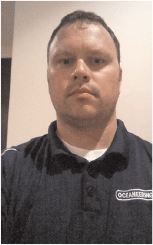Remotely operated vehicle (ROV) intervention technology allows early production from subsea wells
Justin Branner A and Ryan Custer AOceaneering Australia Pty Ltd.
The APPEA Journal 54(2) 525-525 https://doi.org/10.1071/AJ13098
Published: 2014
Abstract
Subsea fields, particularly in deepwater, continue to challenge the economics of development for operators. Production of subsea wells by tying into existing facilities and rig-less intervention solutions undertaken during the initial phases of the project are being used to drive better economic outcomes. A recent deepwater development in the Asia Pacific region used locally developed technology to bring subsea wells into production using an ROV with a custom pumping package to open the formation isolation valve (FIV). This operation on the first two wells was done in 2012 from a vessel and the remaining wells were brought online using the same technology during 2013. As the operator wanted to tie-in production from existing subsea wells to an FPSO in an adjacent field while the development specific facility was still being constructed, an ROV-based remote intervention skid was developed to open the FIV and also leave a negative pressure above the surface-controlled subsurface safety valve (SCSSV). The skid was interfaced with a multi-quick-connect plate to provide bi-directional pumping capability to cycle the ratcheting mechanism of the FIV. This methodology allowed the operation to be completed much faster and at a lower cost compared with the use of a rig and is highly beneficial in locations where subsea wells have been drilled and need to be fast tracked for production. The project was a significant success for the operator and has proven to be a breakthrough in remote intervention technology and custom tooling capabilities in the Asia Pacific region.

Justin is the regional manager for Oceaneering’s deepwater technical solutions group. He has been with Oceaneering since 2006 and has held numerous roles ranging from engineering to business management. Early in his career, he worked on design and operation of remote intervention technologies relative to well stimulation, hydrate remediation and pipeline repair. He holds a BSc in maritime systems engineering from Texas A&M University. Justin has lived in Perth for the past three years with a focus to build the local business and provide the same advanced technology and support to the local market commonly found throughout other regions. |

Ryan is the senior operations manager for Oceaneering Australia and is responsible for the management of the deepwater technical solutions business unit in Australia focusing on ROV tooling, engineering design, manufacturing and advanced subsea technologies. Ryan has lived in Australia for nearly three years and has been at the forefront for building a DTS business which now has more than 50 full time local staff based in Perth from it’s foundation in 2011. Ryan has a mechanical engineering degree from the University of Houston and has been a key driver for advance remote intervention technology developments throughout his career with Oceaneering. |


